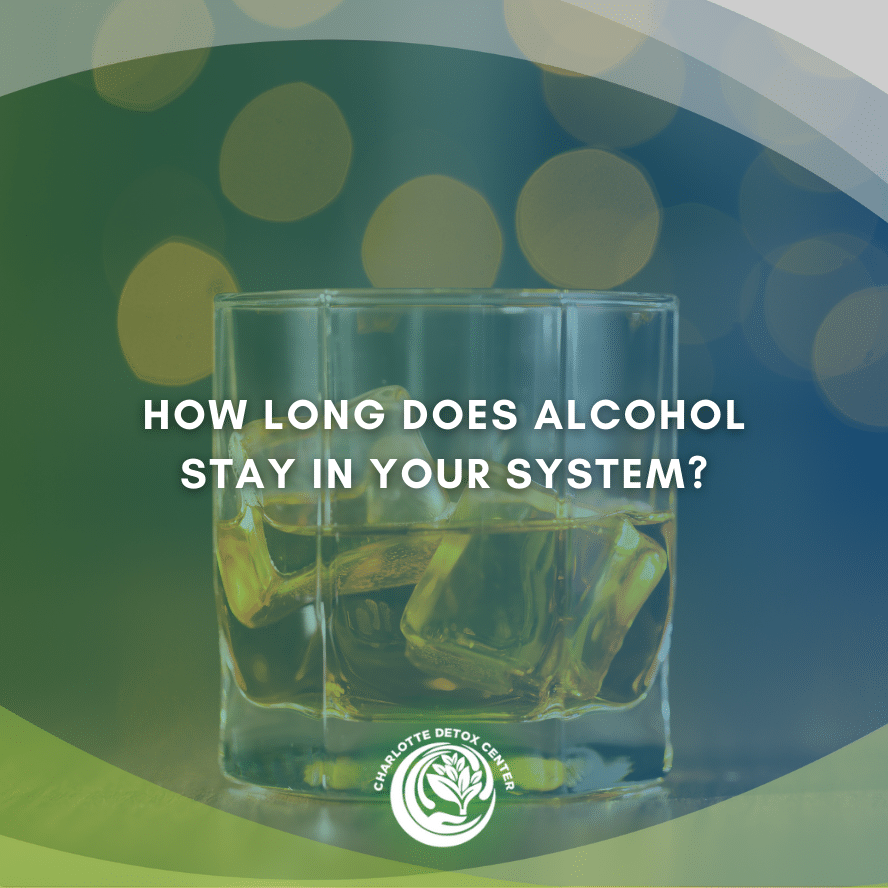How Long Does Alcohol Stay in Your System?

Medically Verified: 2/1/24
Medical Reviewer
Chief Editor

All of the information on this page has been reviewed and verified by a certified addiction professional.
Although alcohol is not a controlled substance, it is dangerous and addictive when abused. Alcohol can cause serious side effects when combined with some medications, severe impairment that can lead to accidents, and the development of a physical dependency in people who consume alcohol in excess for extended periods of time. Understanding how long alcohol stays in your system can help you avoid adverse reactions with certain medications, know when you can pass a drug test, and, if you are addicted, predict when your withdrawal symptoms will begin.
Depending on which type of test is used to detect alcohol as well as individual health factors, alcohol can be detected in your system anywhere from 10-12 hours to 90 days.
How Long Do The Effects of Alcohol Last?
Just minutes after consuming alcohol your body begins to feel the effects. As soon as you drink, alcohol is absorbed by your stomach and small intestine. It is then sent through the bloodstream and central nervous system.[1] Alcohol is a central nervous system depressant, so shortly after it is consumed you experience altered perception, movement, emotions, and senses.
In small amounts, alcohol acts as a stimulant. It can make people more talkative or energetic. However, the more you drink, the more the depressant effects take hold. As you begin to get more intoxicated, you may experience euphoria, reduced inhibitions, lack of coordination, slurred speech, and poor judgment.
How long the effects of alcohol last depends on how much alcohol you have consumed, how quickly, and whether or not you ate before you started drinking. In a healthy person, one standard drink is metabolized each hour. But, someone who has had several standard drinks can feel the effects of alcohol for several hours.
How is Alcohol Metabolized?
The substance in alcohol that produces intoxicating effects is ethanol. Ethanol is metabolized in the liver and turned into acetaldehyde. Then, acetaldehyde gets broken down into acetic acid, then carbon dioxide, then water. A small percentage of alcohol is not metabolized by the liver and is excreted from the body through urine, feces, sweat, and saliva.
The elimination half-life is used to determine how long it takes half of a substance to be eliminated from your system. In the case of ethanol, its half-life is between 4 and 5 hours. However, the body absorbs alcohol faster than the liver can metabolize it.[2] As a result, drinking more than one standard drink per hour can cause your blood alcohol concentration (BAC) to increase rapidly and take longer to be eliminated from your system.
Factors That Affect How Long Alcohol Stays in Your System
How long it takes your body to metabolize alcohol as well as the timeline during which it can be detected in your system is partially dependent on individual health factors, such as:[3]
- Genetics
- Gender
- Body fat percentage
- Age
- Food consumption prior to drinking
- Medications
- Polysubstance use
- How often, how much, and how quickly you drink
- Liver function
Because each person is different, it is impossible to say exactly how long alcohol stays in your system.
How Long Alcohol is Detected in Your Urine, Breath, Blood, Saliva, and Hair
Aside from individual factors, the alcohol detection time is also dependent on the type of test used to screen for alcohol. Some tests have a shorter detection period and can only detect alcohol for a few hours after use while others have a long detection period and can detect alcohol in the body for several months.
Here is an estimate of how long alcohol can be detected in your body with various types of tests:
Urine
Urine tests can screen for alcohol metabolites like ethyl-glucuronide (EtG). It can detect this metabolite for 10 to 12 hours after drinking.
Breath
Breathalyzer tests are only used to detect alcohol and they are the most commonly used test to screen for alcohol. Breathalyzers can detect alcohol in your breath for up to 24 hours.
Blood
Blood tests are usually only used in medical settings, but they can detect alcohol in your blood for up to 12 hours.
Saliva
Saliva tests can detect alcohol between 24 to 48 hours after drinking.
Hair
Hair follicle tests have the longest detection window of all. Alcohol can be detected in your hair follicle for up to 90 days after drinking.
Getting Alcohol Out of Your System Safely With an Alcohol Detox Program
If you are addicted to alcohol and trying to flush it from your system rapidly, you’re likely to go into withdrawal. Withdrawal from alcohol is substantially more dangerous than withdrawal from most drugs, and in severe cases, it can even be life-threatening. The safest way to detox from alcohol is to do so at a licensed medical facility under the care and supervision of medical professionals.
Here at Charlotte Detox Center our team of medical professionals is dedicated to your safety and comfort during detox. Located in a beautiful facility with top-rated addiction specialists, Charlotte Detox is the best place to begin your recovery journey.
Call now to speak with an admissions coordinator to see if our alcohol detox program in Charlotte, NC is right for you.
References:
